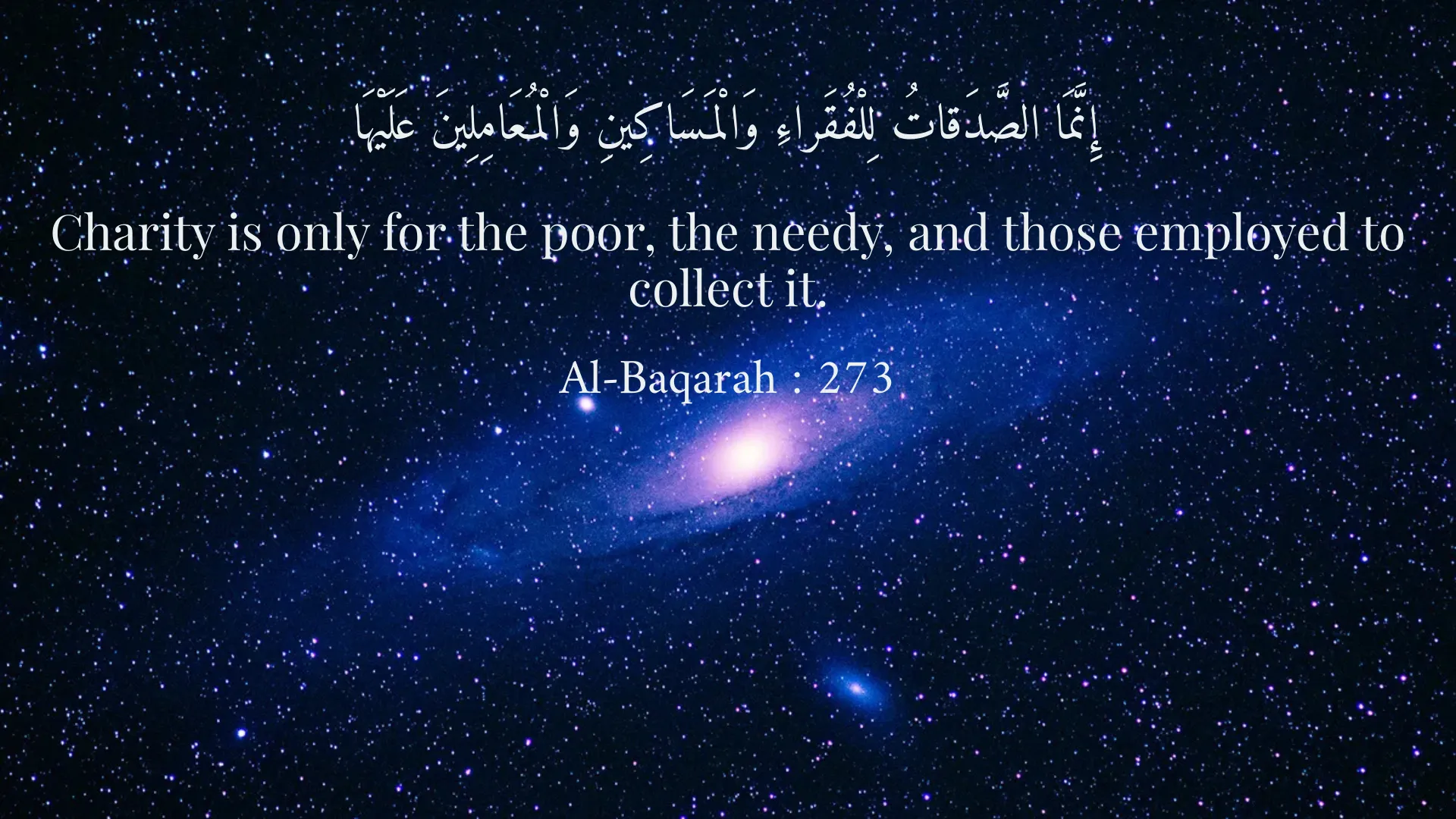Quranic Answer

The Quran is recognized as the holy scripture of Islam, containing the eternal words of Allah (God) revealed to the Prophet Muhammad (peace be upon him). Among its many themes, the Quran places immense significance on social justice, compassion, and the alleviation of poverty. The emphasis on helping the poor and needy can be found throughout its chapters, showcasing the moral and spiritual obligation of Muslims to support those who are less fortunate. This article aims to delve deeper into the essential tenets of charity in Islam, exploring key verses from the Quran, the benefits of almsgiving, narratives of the Prophets, and how these elements contribute to building a more just and harmonious society. One of the most prominent verses discussing charity is Surah Al-Baqarah, verse 273, which succinctly states: 'Charity is only for the poor, those in need, and those who work for it.' This verse delineates the categories of individuals who are entitled to receive charity and emphasizes the importance of directing charitable acts toward those who are genuinely in need. By highlighting that charity is for the poor and needy, the Quran underlines the concept that giving should be motivated not by personal gain or recognition, but by compassion and a genuine desire to uplift those who are disadvantaged. This act of giving is not merely a financial transaction but is regarded as an act of worship that draws individuals closer to Allah. Furthermore, Surah At-Tawbah, verse 60, expands upon this notion by depicting obligatory almsgiving, known as zakat, as a means to achieve goodness and blessings within the community. Zakat, which is typically calculated as a fixed percentage of a Muslim’s savings, serves as an essential pillar of Islam and embodies the concept of social solidarity. By paying zakat, Muslims not only fulfill a religious obligation but also contribute to the welfare of society as a whole. This creates a mechanism through which wealth can be redistributed, allowing for a more equitable social structure. The act of giving zakat thus fosters a spirit of generosity, community, and collective responsibility among individuals, alleviating poverty and improving the lives of the less fortunate. The Quranic teachings surrounding charity pull from narratives of esteemed Prophets, such as Prophet Abraham (Ibrahim) and Prophet Job (Ayyub), whose stories illustrate the significance of aiding those in need. In the life of Prophet Ibrahim, we find numerous accounts of hospitality and generosity, showcasing how he provided for those who were less fortunate. His willingness to share resources exemplifies the ethos of charity deeply rooted in Islamic tradition. Similarly, the story of Prophet Job stands as an excellent example of patience, faith, and compassion during severe trials. Even amidst his own afflictions, he remained empathetic toward others, embodying the essence of helping the needy. Such stories teach Muslims the importance of being not only compassionate but also active participants in their communities, emphasizing that helping others strengthens societal bonds and fosters an environment of mutual support and understanding. The essence of aiding the poor transcends mere charity and evolves into a fundamental practice of kindness and empathy—a key element in Islamic worship. Helping the less fortunate is seen as an ethical responsibility for Muslims, and it transcends cultural, racial, and socioeconomic boundaries. The Quran clearly states that those who give charity with sincere intentions and a loving heart are beloved to Allah, and their rewards will be plentiful. This reinforces the idea that giving is not just a material transaction but a profound spiritual exercise that enriches the giver’s soul. Additionally, the collective well-being of society is interlinked with the well-being of its individuals. When the poor and needy thrive through communal support and charitable actions, society edges closer to a model of social justice and harmony. The Quran’s repeated emphasis on charity aims to remind believers that when the marginalized are elevated, the entire community flourishes, leading to tranquility and mutual respect. Moreover, it is essential to acknowledge that helping the poor and needy also contributes to one’s own spiritual growth. It cultivates a sense of gratitude, humility, and selflessness. By recognizing the struggles of the less fortunate, individuals become more aware of their privileges and their responsibilities towards others. This transformation can manifest incredible changes in one's character, aligning it with the core values of compassion and empathy that Islam upholds. In conclusion, the significance of helping the poor and needy in Islam cannot be overstated. The Quran, through its verses and narratives, reinforces that charity is a fundamental act of worship that strengthens the fabric of society. This ethical responsibility, deeply embedded in Islamic teachings, catalyzes social justice, nurtures kindness, and fosters an environment where the less fortunate can thrive. By practicing charity selflessly, Muslims adhere to the instructions of Allah and the examples set by the Prophets. Therefore, promoting and engaging in acts of generosity can not only uplift the individuals in need but will also create a brighter, more resilient community that reflects the beautiful tenets of Islam.
Related Verses
إِنَّمَا الصَّدَقاتُ لِلْفُقَراءِ وَالْمَسَاكِينِ وَالْمُعَامِلِينَ عَلَيْهَا
Charity is only for the poor, the needy, and those employed to collect it.
Al-Baqarah : 273
إِنَّمَا الصَّدَقاتُ لِلْفُقَراءِ وَالْمَسَاكِينِ وَالْعَامِلِينَ عَلَيْهَا وَالْمُعَتلِّينَ.
The almsgiving is only for the poor, the needy, and those employed to collect it.
At-Tawbah : 60
Short Story
One day, a man named Hasan was on his way to the market when he encountered a few poor people. Feeling compassion in his heart for them, he decided to pull some money from his pocket to help them. As he handed the money to the needy, smiles lit up their faces and Hasan felt a surge of joy and peace. At that moment, he realized that helping the poor not only assists them, but is also a pathway to God's satisfaction.